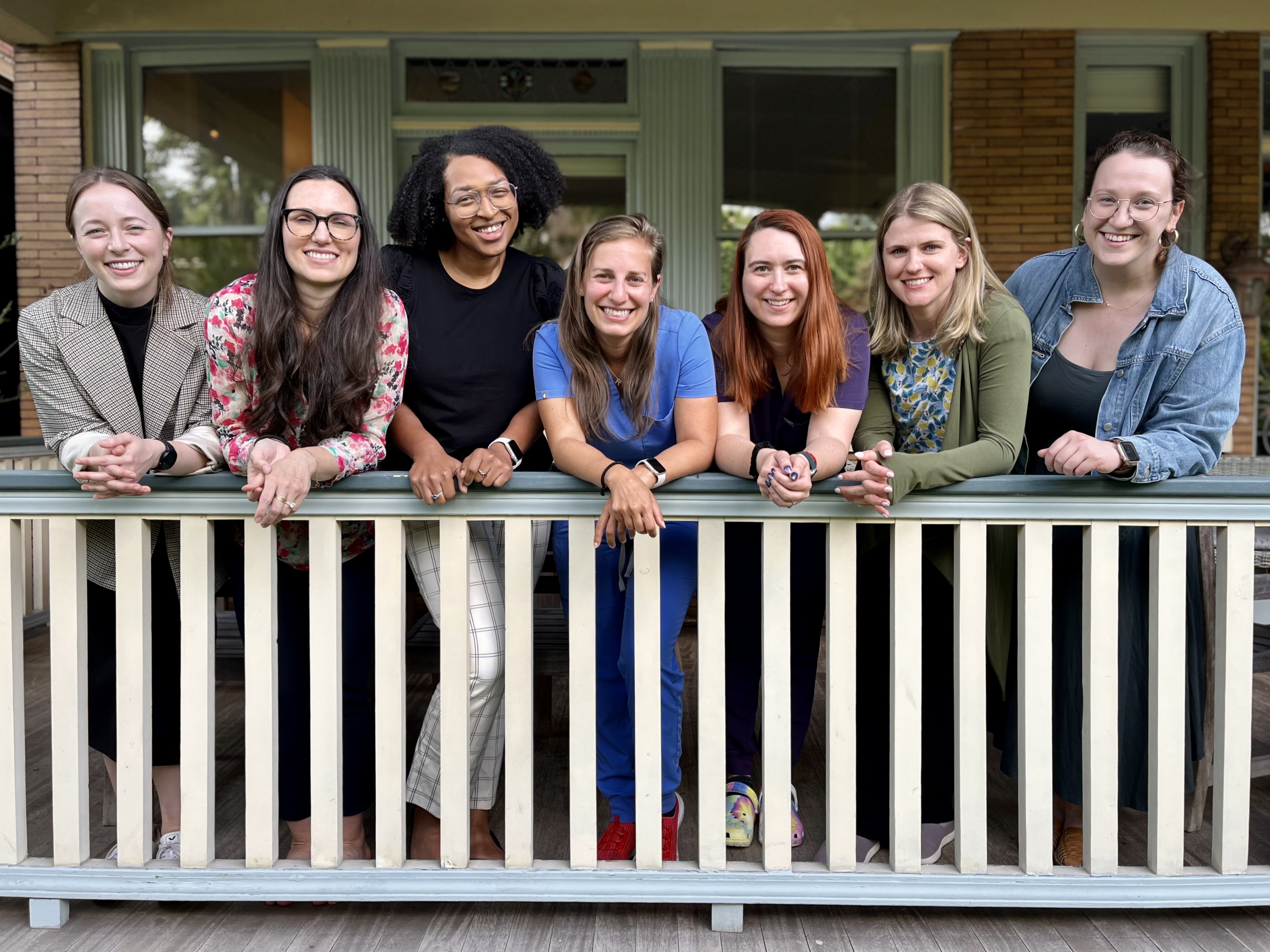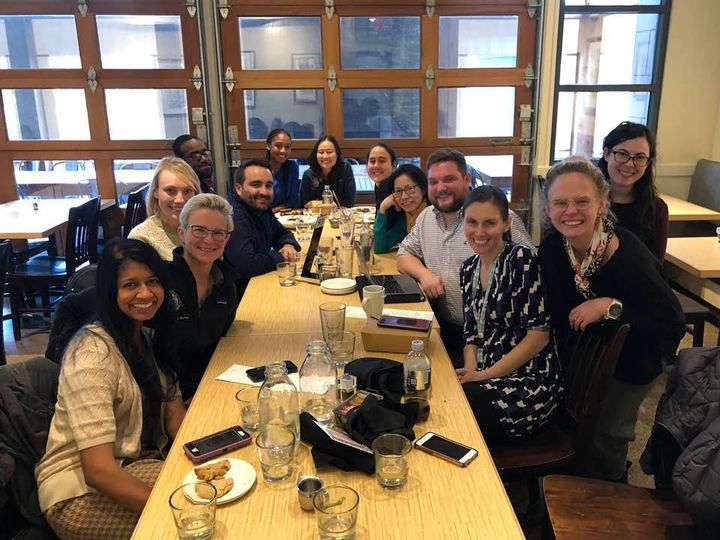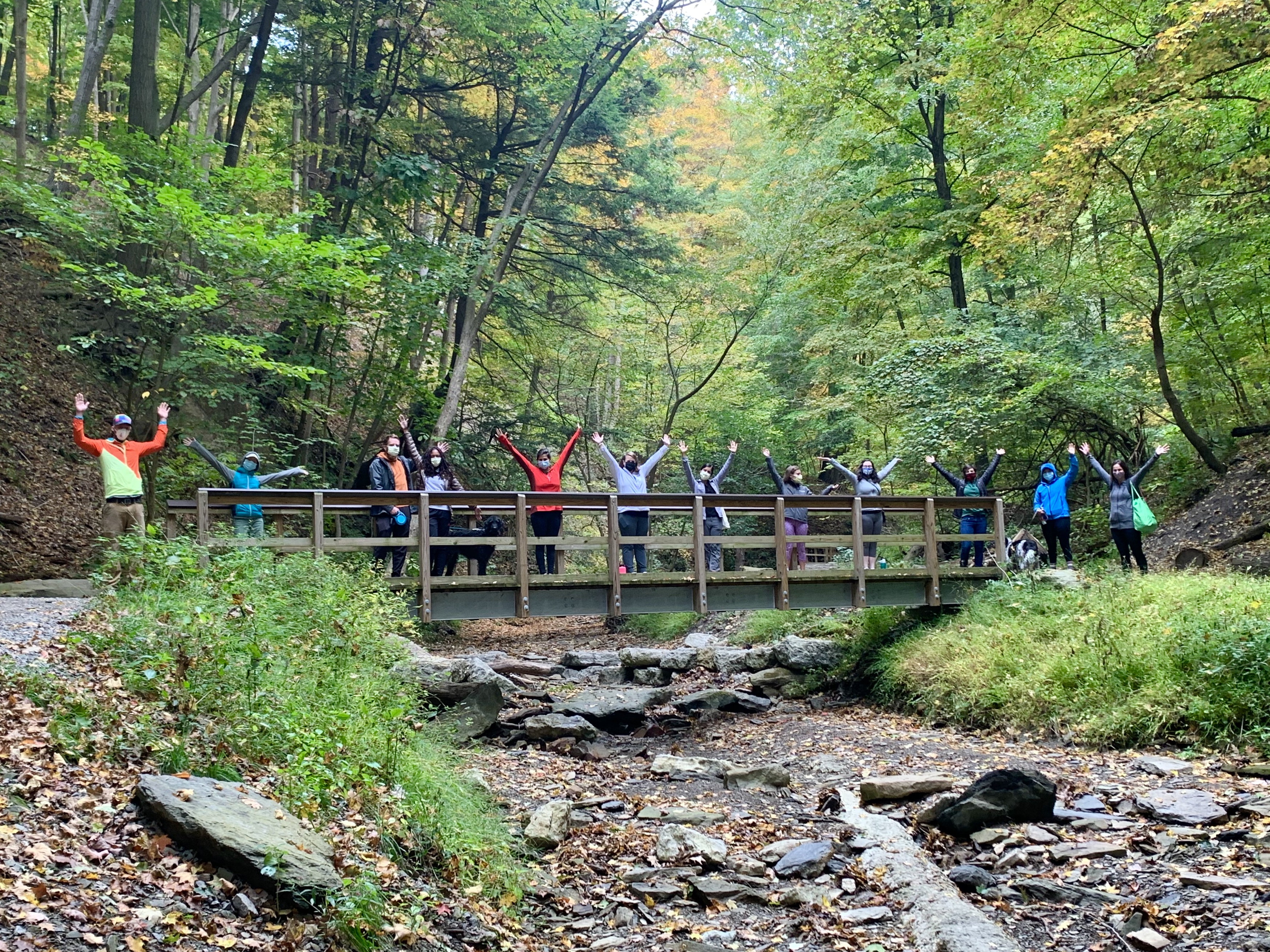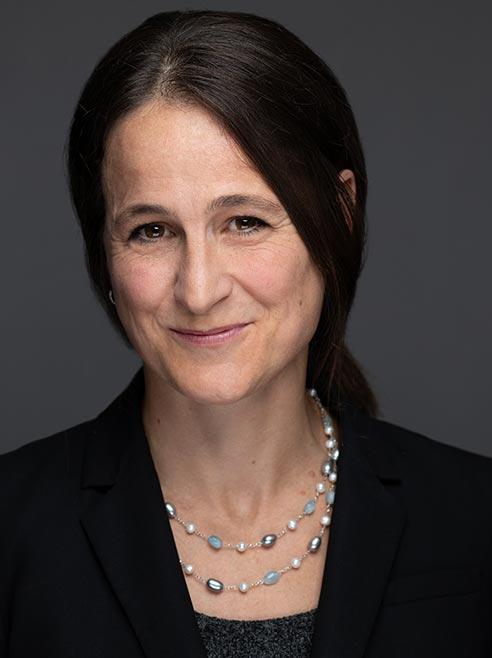The first three years of this program are similar to our General Psychiatry Program, with a few exceptions that help expose Child Track residents to youth earlier in training. Specifically, trainees are exposed to pediatric medicine and pediatric neurology in PGY1 and pediatric consult-liaison in PGY2. Then in PGY3, Child Track residents begin their longitudinal outpatient clinic through the Center for Children and Families, where they may continue to work for up to two and a half years before the end of the program. Also, these residents are assigned child faculty mentors and offered elective and psychotherapy opportunities with transition-aged youth prior to their fellowship years.

Entry into our Child and Adolescent Psychiatry Program is similar to that of our General Psychiatry Program. Our five-year integrated Child and Adolescent Psychiatry Program (i.e. Psych/General/Child) has a unique NRMP Program Code (1652400C1) in ERAS. General Psychiatry residents who later decide to pursue subspecialty training in child and adolescent psychiatry may do so if there are positions available.
The first year, the internship, is designed to provide a foundation for subsequent training in psychiatry. The clinical rotations and weekly teaching are integrated to prepare residents to competently manage a broad variety of medical and psychiatric disorders and emergencies. This is the first step in acquiring mastery over the range of skills needed by a 21st century psychiatrist.
Rotations
Below is a sample annual rotation breakdown for PGY1.
| 4 Week Blocks | Rotations |
|---|---|
| 3 blocks | Family Medicine |
| 3 blocks | Psychiatric Emergency Services |
| 3 blocks | Substance and Trauma-Related Disorders |
| 2 blocks | 2 Weeks of Neurology and 2 Weeks of Night Float at UPMC Western Psychiatric |
| 1 block | Neurology |
| 1 block | Medical Care of the Psychiatric Patient |
While identical to PGY1 in the General Psychiatry Program in goals and most clinical experiences, residents in the Child and Adolescent Psychiatry Program complete some of their medicine requirements through pediatrics at UPMC Children's Hospital of Pittsburgh, as opposed to only through inpatient family medicine through the UPMC St. Margaret’s family medicine program. Additionally, residents in the Child and Adolescent Psychiatry Program split their neurology months, with one month of pediatric neurology and one month of adult neurology.
To accommodate ACGME intern year duty hour requirements, the PGY1 year is split into 13 blocks of four weeks each. Residents in the General Psychiatry Program spend three blocks in family medicine, one full block in neurology, two separated blocks comprising two weeks each of neurology and night float floor coverage at UPMC Western Psychiatric Hospital, and one month in Medical Care of the Psychiatric Patient. Some residents choose to spend additional time in these rotations during electives later in training. Family medicine is done through the UPMC St. Margaret’s family medicine program and includes three blocks of inpatient medicine. Residents spend two blocks in total with the UPMC neurology program and work on either the neurology consult or wards team.

Residents rotate through the UPMC Western Psychiatric Hospital emergency room, Psychiatric Emergency Services (PES), for three blocks and continue to take overnight call in the PES throughout their second year. The free standing PES, separate from the medical Emergency Department at UPMC, provides psychiatric evaluation, brief counseling and crisis intervention, routine pharmacologic management, referrals for acute inpatient hospitalization, partial day programs, and outpatient clinics. During the evenings, the residents are the primary medical doctors in the PES, working with a directly supervising attending, "in house".
A three block rotation in substance-related disorders and anxiety disorders is divided into a 1-block rotation at the Center for the Treatment of Addictive Disorders (CTAD) and Post Traumatic Stress Disorder Clinic, VA Pittsburgh Healthcare System, and a total of two blocks rotating at UPMC Western Psychiatric Hospital on an inpatient service specializing in acute treatment of patients with comorbid psychiatric and addictive disorders.
Teaching Curriculum
The formal weekly teaching curriculum during PGY1 provides a fundamental psychiatric knowledge base upon which subsequent training and education will build. The curriculum includes lectures, seminars, case conference, grand rounds and workshops. These programs are directed and taught by faculty, many of whom are renowned experts in their fields.
The second year of residency training provides a core set of experiences covering the scope of inpatient psychiatry, including clinical rotations in adult, child, geriatric, and consultation and liaison (C/L) psychiatry services. Child Track residents also have the opportunity to spend 4 weeks of their PGY2 rotating on our pediatric C/L service, providing them earlier exposure to various levels of care in child and adolescent psychiatry. The weekly teaching sessions are closely integrated with these clinical experiences. In addition, residents begin psychotherapy training with patient assignments and individual supervision in the middle of PGY2. At the end of the second year, residents can competently diagnose and treat a wide variety of common psychiatric disorders.
Rotations
Residents in the Child and Adolescent Psychiatry Program join their colleagues in the General Psychiatry Program in all clinical and didactic experiences, but they begin to see child and adolescent outpatients along with their adult outpatients. This allows for a more longitudinal experience in the treatment of children and adolescents than would otherwise be possible in the two year fellowship.
Residents spend 10 to 11 weeks in four specialty inpatient services, reflecting four broad areas in clinical psychiatry. Each inpatient service has "teaching teams", with one resident supervised by one attending. Residents carry no more than eight patients at any given time. On each service, residents work closely with the supervising attending and the treatment team, comprising nurses, social workers, and other clinicians. Residents are given increasing independence in managing the assigned patients with time. Onsite medical coverage and specialty consultations are available through Presbyterian Hospital, which is physically connected to UPMC Western Psychiatric Hospital by an indoor tunnel. Residents continue to take overnight call at UPMC Western Psychiatric Hospital throughout their second year, except while on C/L rotation.
The consultation and liaison (C/L) psychiatry service provides psychiatric consultation to all units (medical, surgical, transplant, intensive care units, oncology, obstetrics, gynecologic, etc.). Residents are assigned patients for consultation and, under supervision, are expected to provide a set of management recommendations and follow these patients for the duration of the hospital stay. Lectures and seminars on C/L topics are conducted daily. Residents on this service are exempt from call at UPMC Western Psychiatric Hospital. Instead, they provide evening and weekend coverage to the C/L service from home, coming in as necessary and on weekends or holidays.
| Rotations (10 to 11 week blocks) |
|---|
| Mood Disorders Unit |
| Psychotic Disorders Unit |
| 6 weeks at the Geriatric Psychiatry Unit and 4 weeks of Pediatric Consultation/Liaison service |
| Child and Adolescent Unit |
| Consultation/Liaison Service |
Teaching Curriculum
The formal teaching curriculum during PGY2 expands on the acquisition of fundamental psychiatric knowledge that began during PGY1, and is closely linked to the clinical experiences during this year. The curriculum includes lectures, seminars, case conferences, grand rounds and workshops.
The third year of residency training builds on the skills and knowledge acquired during the first and second years of residency. PGY3 residents work in several general and specialty clinics that provide opportunities to learn about different models of care. These models include following patients independently, seeing patients concurrently with therapists, and working in close collaboration with multidisciplinary treatment teams.

At the end of the third year, residents are able to competently diagnose and treat patients, and provide longitudinal care in a variety of outpatient settings. They also achieve increasing levels of competency in psychotherapy.
Rotations
Residents are required to complete two year-long clinics as well as the six-month requirements of Geriatric and Child and Adolescent Psychiatry. In addition, residents choose, at a minimum, three six-month electives. An elective typically occurs once per week for a half-day per week. Each clinic is directed by faculty who are experts in their fields. Residents continue psychotherapy training with additional patient assignments and individual supervision.
The table below shows the required and elective rotations for PGY3.
| Rotations |
|---|
| Bellefield Clinic – Mood, Anxiety, Personality Disorders (12 months) |
| Comprehensive Recovery Service – Serious Mental Illness (SMI), Psychotic Disorders (12 months) |
| Benedum Geriatric Center or Alzheimer Disease Research Center – Major Neurocognitive Disorders and Old-Age Psychiatry (6 months) |
| Center for Children and Families – Child and Adolescent Psychiatry (6 months) |
| At least 3 Elective Outpatient Clinics (6 months each) |
| Long-term Psychotherapy |
Teaching Curriculum
The formal teaching curriculum during PGY3 provides a series of advanced topics, including courses on multiple modalities of psychotherapy, advanced psychopharmacology and evidence-based medicine.
The first year of full-time child and adolescent psychiatry training provides a broad clinical and didactic exposure to the field, building on the first three years of training. Fellows work with children, from early-childhood to late-adolescence, in a variety of treatment settings and using a variety of therapeutic modalities. This first year instills in our fellows an appreciation of the particular needs of children, adolescents, and their families in the mental health system. By the end of the year, fellows develop a strong foundation of skills needed to assess and treat young patients, with particular appreciation of the impact of developmental variables.
Teaching Curriculum
Formal didactics during the first year of child and adolescent fellowship are focused on developing a fundamental knowledge base in child and adolescent psychiatry, both in assessment and treatment.
Rotations
The table below shows the required and elective rotations for PGY4.
| Blocks | Rotations (8 to 10 weeks) |
|---|---|
| 1 block | Child and Adolescent Inpatient Program |
| 1 block | Center for Autism and Developmental Disorders (CADD) Inpatient Unit |
| 1 block | Southside Acute Adolescent Partial Hospitalization Program |
| 1 block | Consultation-Liaison Service at Children's Hospital of Pittsburgh |
| ½ block | Integrated Care at Community Care Pediatrics (CCP) |
| ½ block | Mathilda Theiss Child Development Center |
Note: Continuity Clinic and child and adolescent psychotherapy continue throughout the year.
Child Inpatient Program
This service treats mostly school-aged and younger patients. Fellows work with a seasoned attending, managing all aspects of the care of a team of seven to nine patients, including psychopharmacology, individual and milieu needs (e.g. collaborative problem solving), educational and larger systems needs (e.g., child welfare), and family treatment. Residents also have the opportunity to interact with managed care entities, depending on individual patient needs.
CADD Inpatient Program
The Center for Autism and Developmental Disorders (CADD) Inpatient Units specialize in assessing and treating individuals with autism spectrum disorder and/or developmental disabilities with co-occurring psychiatric or behavioral disorders. This unique program offers a wide selection of treatment contexts and modalities within which residents have the opportunity to train. Similar to the experience on the child inpatient unit, fellows manage all aspects of care of a team of seven to nine patients under the supervision of an attending experienced with this special population.
Mathilda Theiss Child Development Center
The Mathilda Theiss Child Development Center is a unique clinical setting within the local community which allows the child fellow to observe infants, toddlers, and preschoolers with developmental and other behavioral disorders. The Center’s Behavioral Health service offers a parent/infant assessment and treatment program (e.g. Parent Child Interactional Training, Parent-Child Psychotherapy, etc.) as well as a toddler day treatment program. Fellows evaluate and treat patients and families within both settings, working with a psychiatrist and psychologists with expertise in these age groups.
Integrated Care
Integrated care utilizes limited resources smartly to reach more patients. Thus our next generation of psychiatrists will need to graduate from residency and fellowship having a better understanding of their role in integrated care models. Our fellows are introduced to the delivery of psychiatric care in primary care and specialty medical settings. Patients are seen in the busy outpatient practices in the community through the Community Care Pediatrics (CCP). Fellows are also exposed to the state-funded TiPS Program which provides consultation to primary care physicians in western Pennsylvania. Fellows not only work closely with attending psychiatrists in these integrated care settings, but also have the opportunity to interact directly with all members of the multi-disciplinary team. Throughout the course of the rotation, fellows gain a basic understanding of: the diverse roles of the psychiatrist in different systems of care, the evidence-base for mental health care delivery in integrated settings, consultation and collaboration without direct patient contact, clinician-education to professionals in primary care and specialty medical care, supervision of care coordinators and integrated clinicians, legal considerations and documentation in integrated care models, billing and coding considerations for mental health care in non-psychiatric settings, and administrative skills to support and potentially lead integrated care models.
Acute Adolescent Partial Program
The Acute Adolescent Partial Program provides intensive day treatment to adolescents not in need of inpatient treatment, but whose clinical acuity is nonetheless quite high. Fellows manage a team of approximately nine patients under the supervision of an experienced child and adolescent psychiatrist. In addition, fellows have the opportunity to provide individual psychotherapy, participate in group interventions and family sessions, as well as manage medication treatment.
Consult/Liaison Service at Children’s Hospital of Pittsburgh
The Children’s Hospital of Pittsburgh (CHP) Consult-Liaison (C/L) Psychiatry service provides consultation to a wide variety of general and specialty services within this large, academic children’s hospital. Fellows evaluate patients and present them to one of a team of child and adolescent psychiatrists who work in this setting. 24-hour on-call phone service, and weekend C/L rounding is provided by the fellows during the first year of fellowship to the C/L service at Children's Hospital of Pittsburgh.
Continuity Clinic
The half-day/week continuity clinic at the Center for Children and Families (CCF) continues throughout the first year of child and adolescent fellowship training, and is designed to provide the fellows depth of experience in the outpatient psychiatric assessment and treatment of youth. Fellows can choose to continue in this clinic during their second year of fellowship for a combined total of two and a half years of continuity.
The second and final year of the full-time child and adolescent fellowship further develops fellows’ skills and knowledge. In addition, it offers fellows the opportunity to electively focus on particular areas of interest, allowing them to select experiences tailored to their career goals.
Teaching Curriculum
Formal didactics in PGY5 deepen the fellows’ expertise in child and adolescent psychiatry, and address more advanced and specialized topics within the field. Additionally, a number of classroom sessions are career-focused, concentrating on the post-residency transition.
Rotations
The predominant focus of the final year is on outpatient experiences and elective training. There are no call responsibilities during this year. Required outpatient experiences include:
- Forensics
- School consultation
- Adolescent dual diagnosis
- Child and family psychotherapy
- Seniorship and scholarly project
The highlight of this year is the ability to take advantage of the wide variety of subspecialty electives at UPMC. A few examples include: pediatric bipolar disorder, obsessive-compulsive disorder, adolescents at high risk for suicide and non-suicidal self-harm, autism and developmental disorders, attention and hyperactivity disorders, eating disorders, integrative medicine, and transition to college and early-adulthood. Fellows are also allowed to create new elective experiences that are relevant to their career goals. In addition, non-clinical experiences in systems of care, managed care, educational or administrative activities, and research are available. Interested residents may also participate in our Public Service Psychiatry Fellowship or pursue certification in Electro-Convulsive Therapy.
Interested in our program? Read about how to apply and learn about the city of Pittsburgh.

